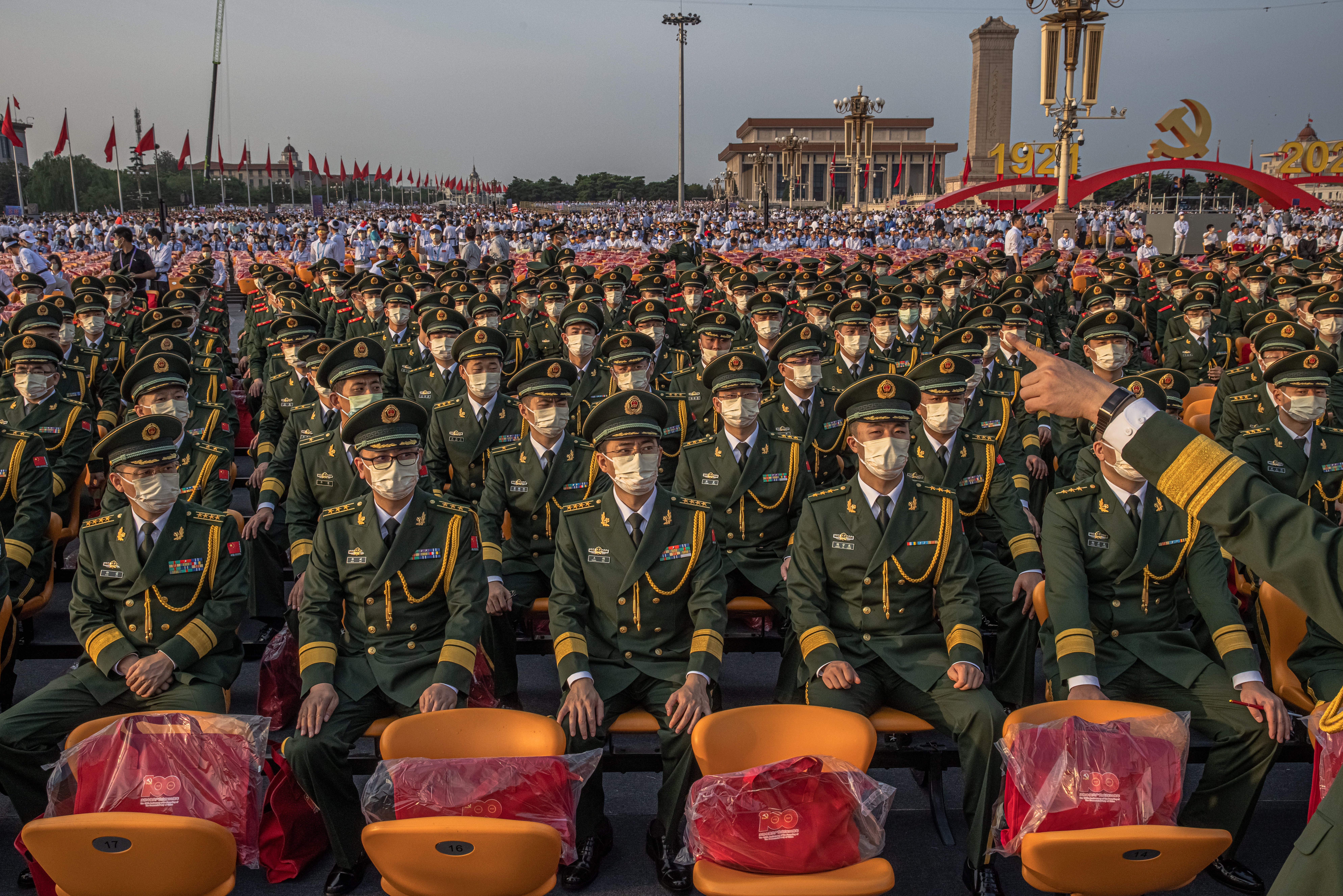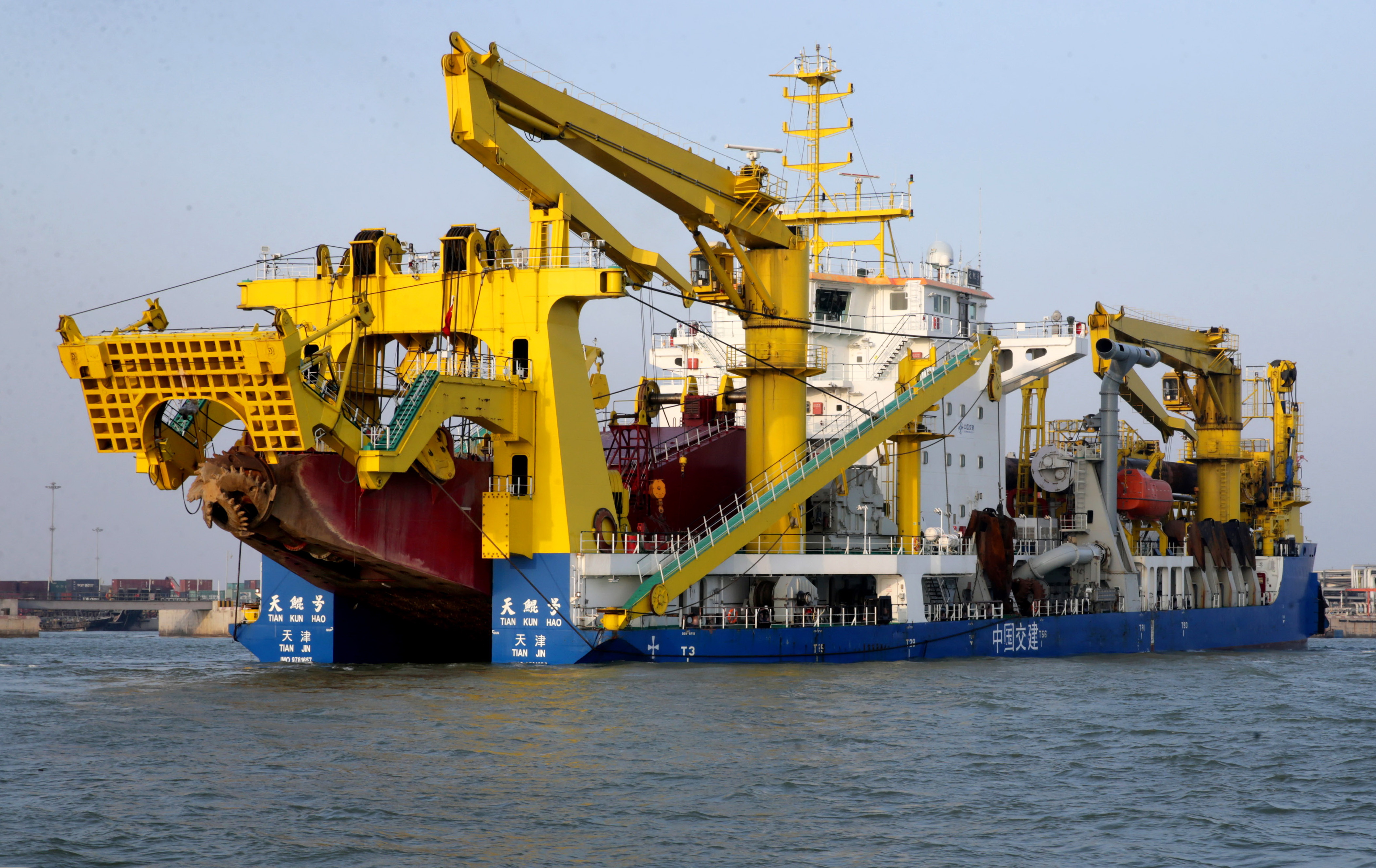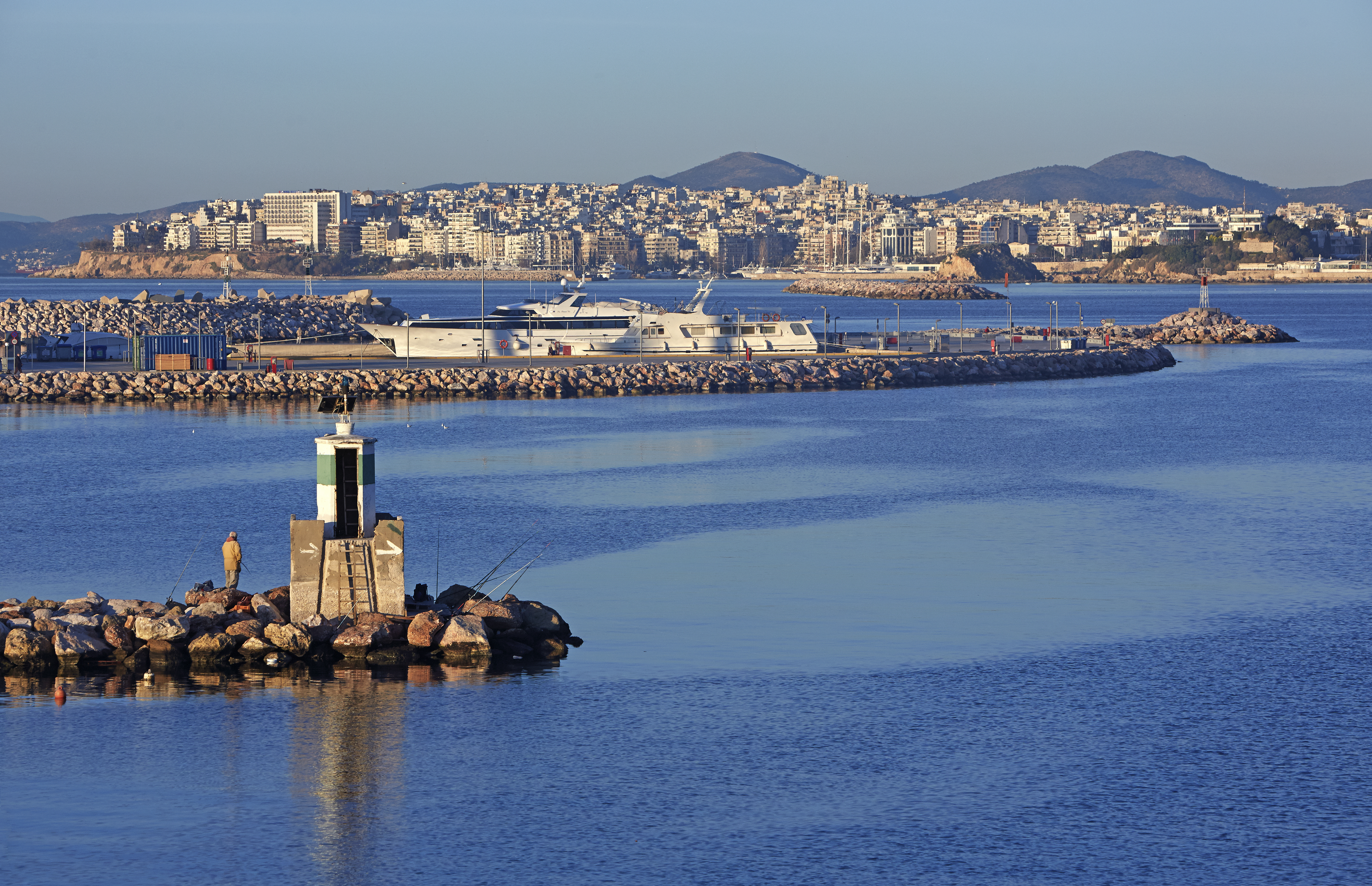BEIJING is waging a secret war against the West using honeypot spies, land-grabbing ships and data hacks in a bid to overthrow the world order.
For years, the West has watched anxiously as China has ramped up the size of its military – from dozens of new warships to menace Taiwan, to hundreds of nuclear silos in the desert.
But while world leaders wait to see what Xi Jinping intends to do with his new armies, Beijing is already waging a war right under their noses.
A new report has laid bare the “unprecedented” scale of this political warfare – and warned it poses a real and growing threat to America and its allies.
Seth Jones, report author and Center for Strategic and International Studies think-tank expert, said: “In our interviews with the FBI, they said… this is the most aggressive period they have ever seen of Chinese activity.
“One official said to us: ‘The system is blinking red right now’.”
Geopolitical strategist and Atlantic Council fellow Alp Sevimlisoy also warned the “threat is getting more and more serious day by day”.
“It is important that we realise that China is a threat, not a challenger or competitor,” he said.
“A challenge or a competitor seeks to play on the same playing field as you and win playing by the rules. In China’s case, it seeks to undermine us and our unity.”
From land-grabbing drill ships, data hacks and AI, to a shadowy intimidation campaign code-named Operation Fox Hunt, here is how Beijing is working to overthrow the West.
Cyber attacks
Perhaps China’s most-successful under-the-radar activity has been its cyber attacks – which are thought to steal company secrets worth some $600billion each year.
But less-well-know and arguably more successful has been its hacks of personal data.
According to CSIS researchers, since 2014 the Chinese have stolen data on an estimated 80 per cent of Americans.
This was accomplished with large-scale breaches of companies including Starwood Hotels from which they stole reservation, credit card, passport and other information covering roughly 500million people.
Credit agency Equifax, the Office of Personal Management, and health insurer Anthem were also hacked and together yielded data on another 248million people.
“This repeated collection of vast amounts of data means that Beijing knows more about Americans than Americans likely know about themselves,” CSIS said.
And what exactly China does with all that data isn’t clear, but the possibilities are troubling.
Researchers believe patterns in the hotel booking data could help Beijing identify trips by high-profile individuals in the future – including where they are staying.
In our interviews with the FBI… this is the most aggressive period they have ever seen of Chinese activity
Seth Jones
And the fact they seem to have prioritised stealing vast quantities of data – rather than specific data – suggests they are also using it to train artificial intelligence.
That AI could then be used to benefit China – for example using stolen medical data to recognise illnesses – or attack its adversaries.
“TikTok’s data-gathering capability reveals what media Americans find most engaging and what kinds of messages are most effective, which enables China to develop compelling messages that serve China’s larger interests,” the CSIS report says.
Even more worryingly, researchers raise the prospect that Beijing “appears poised to use cyber operations for real-world effects, including attacks that could endanger lives”.
That includes cyber attacks that could threaten gas and oil pipelines – such as the one that crippled the Colonial Pipeline back in 2021.
The attack shut down the oil pipe which supplies more than half the gasoline used on the US East Coast – and was thought to be carried out by a group based in Russia.
CSIS notes that “China’s growing sophistication and increasing aggressiveness in its campaigns mean it can compete effectively with the United States and Russia, from penetrating defence contractors to holding critical infrastructure at risk”.
Land-grabbing ships
The fact that China has built military islands in the South China Sea is hardly a secret.
Clearly visible by satellite, they are bristling with airfields and missile batteries.
But lesser known are the two huge drill ships used to build the islands in the first place, and which are now being used to literally steal land from US ally Taiwan.
The Tian Kun Hao is 460ft long, weighs 2,800 tons and was dubbed by its creators the “magical island maker”.
It works by lowering a cutting disc up to 115ft underwater where it chews up sand, clay and rock at a rate of 6,000 cubic metres – a little over two Olympic swimming pools – per hour.
Alongside its sister ship the Tian Jing Hong, which is only marginally smaller at 420ft, and a fleet of smaller vessels – it is being sent into Taiwanese waters to literally seize land.
Targeting the Penghu and Matsu Islands – located in the Taiwan strait – these vessels were caught illegally drilling sand and rock almost 4,000 times in 2020 alone.
Researchers at CSIS believe the ships are gathering materials for the Chinese construction industry, but the fact they come to Taiwan to get it hints at a more sinister purpose.
They believe the sheer scale of the incursions is designed to exhaust and over-extend the coast guard, which has to eject them each time they approach the islands.
Which drags them away from other vital missions, such as monitoring Chinese warships which are increasingly sailing into Taiwan’s defence zone.
And they are not the only vessels harassing Western allies in the region. Beijing also maintains a fleet of militarised fishing vessels which it uses to bully its neighbours.
The People’s Armed Forces Maritime Militia (PAFMM) appears to be a collection of civilian fishing boats but in reality, CSIS says, they are paid by the Chinese government to assert its claims to disputed waters.
Known as Beijing’s “little blue men”, the vessels recently helped the Chinese coast guard menace Philippines navy ships resupplying troops on the Second Thomas Shoal.
Then, when the US, Japan and Australia announced joint navy drills in the area in response, hundreds of the fishing vessels gathered as a show-of-force.
Though CSIS believes their primary role is intelligence-gathering and intimidation, the sabre-rattling has led to fears that China could arm them in the event of a conflict.
But it is not just in waters close to China where Beijing is asserting its influence, it is also staking a claim hundreds of miles to the north in the Arctic.
The Xue Long and Xue Long 2 – whose names mean Snow Dragon – are two polar ‘research’ which, via the Ministry of Natural Resources, report to the Communist Party.
Despite being located hundreds of miles outside the Arctic Circle, China has designated itself a ‘near-Arctic state’ and now maintains a permanent presence there.
The Xue Long vessels are used to supply its permanent bases – located in Svalbard and Iceland – but also to conduct ‘research’ missions closer to the pole.
According to CSIS, one such mission in 2018 resulted in Xue Long placing China’s first unmanned research station on the ice along with various types of observation equipment.
These installations, CSIS believes, are ultimately designed for spying.
The report says: “China’s growing strategic emphasis on the Arctic stems from its perception of the region as yet another theatre for global competition.
“China has used state-led research efforts to assert its presence in the Arctic and to establish sites capable of collecting intelligence on activities in the region.”
‘Trojan horse’ traps
China is the world’s largest creditor, having doled out an astonishing $1.5trillion in loans and grants to more than 150 countries up to 2020.
The method has been dubbed a Trojan horse – the argument being that China traps countries into a spiral of debt and takes over critical infrastructure.
Billions have flowed into some of the world’s poorest regions – Africa, the Caribbean, South America – with sometimes disastrous results, such as the rioting that rocked Sri Lanka.
The results have often been obvious – such as the Solomon Islands signing a defence pact with Beijing or Panama cutting ties with Taiwan – but the same tactics are being used far more subtly and far closer to home.
That’s because China has also been buying up infrastructure in Europe and making in-roads into the US economy, raising fears it will try to use that position to get its own way.
Which is exactly what Beijing did try to do in 2018 when Australia banned Huawei and ZTE from building the country’s 5G networks.
In that case, they retaliated by restricting the trade of coal, beef and wine – and while the move ultimately backfired, in Europe it could have serious knock-on effects.
That’s because China owns stakes in a dozen critical ports including majority stakes in Piraeus Port in Greece, Valencia and Bilbao, in Spain, and Zeebrugge, in Belgium.
This funding and financing… seeks to make Europe wholly dependent on China and to use that as a form of political bartering
It also holds minority stakes in some of the continent’s biggest ports, such as Antwerp and Hamburg, Germany’s largest container port.
China has also piled money into European airports, buying up 9.5 per cent of Heathrow Airport in 2013, 49.9 per cent of France’s Toulouse Airport in 2014, and 82.5 per cent of Germany’s Hahn airport.
In Portugal, the state-controlled Three Gorges Corporation bought 20 per cent of the country’s top power provider, which has a near-monopoly on home energy, and 25 per cent of the national grid.
Threatening that infrastructure could cripple the continent economically and weaken its resolve to stand with the US in the event of a confrontation – for example over Taiwan.
“The European Union’s largest trading partner is now China, an aspect we must be ready to counter as those of us who are part of NATO member nations,’” Mr Sevimlisoy added.
“This funding and financing, it doesn’t seek to build up Europe – far from it – it seeks to make Europe wholly dependent on China and to use that as a form of political bartering.
“Europe is a critical battleground, and we’ve paid a huge price to protect it in the past. Are we willing to do what is necessary to protect it now?”
Spy networks
Overseen by the Ministry of State Security, which coordinates China’s overseas intelligence operations, Beijing is thought to maintain huge networks of spies the world over.
This is part of a “thousand grains of sand” approach that aims to piece together tiny and seemingly insignificant pieces of information from lots of sources into one big picture.
In recent years, China has used LinkedIn as a recruitment tool for these spies – posting bogus adverts purporting to be from headhunters, consultants, think-tanks and academics as a way of luring people in.
According to data reviewed by CSIS, there have been more than 10,000 such posts targeting those in the UK alone – and it appears Beijing has made infiltrating the UK parliament a priority.
In March this year, police arrested a parliamentary researcher with links to prominent Tory MPs on suspicion of being a Chinese spy, though he denies the claims.
And in January last year, MI5 issued a warning about lawyer Christine Ching Kui Lee who they accused of trying to influence politicians on behalf of China – though no criminal charges were brought.
Rather than working for the Ministry of State Security – as three spies deported from the UK in 2020 were – Ms Lee was accused of working for the United Front Work Department (UFWD).
The UFWD is part of Communist Party efforts to effectively co-opt the entire Chinese diaspora into its efforts to supplant the West.
In December 2020 it emerged US Congressman Eric Swalwell had a relationship with suspected Chinese spy Christine Fang.
Known as Fang Fang, she reportedly had sex with two mayors and targeted politicians to infiltrate US political circles.
These tools are part of a broad strategy of political warfare
CSIS report
The suspected spy targeted aspiring politicians from 2011 to 2015 and had a reported focus on Swalwell.
Mao Zedong was one of the first to use the phrase “united front” back in 1939 as he established dozens of organisations to exert control over the millions of Chinese who were not members of his party – to make them part of the “united front”.
Xi revitalised the concept when he took power in 2012 and CSIS says the scale of united front work is now “massive” and cannot be fully accounted for.
China’s Confucius Institutes established on many Western university campuses aim to influence debate, and donate to those same universities to influence how they are run.
Students who expressed views critical of China or its policies report being harassed or intimidated by members of the institute, who threatened to report them to their embassy.
The Chinese Ministry of Public Security also ran two secretive operations subbed Fox Hunt and Skynet.
Researchers described it as “an effort to monitor, harass, and in some cases repatriate Chinese diaspora living abroad”.
Fox Hunt was uncovered earlier this year with the discovery of a network of “police stations” dotted across the world from which the operation was run – including one in Manhattan and one in London.
Lesser-known is Operation Skynet, which the FBI says works in parallel to target the finances of Chinese citizens living overseas by seizing any funds they may have still tied up in the homeland.
The report concludes: “These tools are part of a broad strategy of political warfare, which US diplomat George Kennan described as ‘the employment of all the means at a nation’s command, short of war, to achieve its national objectives’.
“The US public and other international audiences are often unaware of the full nature and scope of these activities.
“Together with its partners, the United States now needs to develop a comprehensive approach to compete in this arena that is consistent with its democratic principles and values.
“The clock is ticking.”






